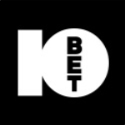The World of Camel Betting: Tradition, Evolution, and Modern-Day Appeal
An In-Depth Exploration of Camel Racing, Its Betting Culture, and the Sport’s Remarkable Transformation Over the Years
 Camel racing is one of the oldest sports in human history, tracing its roots back thousands of years to the deserts of the Arabian Peninsula. What began as a traditional pastime has evolved into a multi-billion dollar industry, merging high-stakes racing, betting, and advanced technology. This remarkable transformation has not only sustained the sport through centuries but also opened it to a global audience. The allure of camel racing lies in its blend of cultural heritage and high-octane excitement, which has attracted spectators, bettors, and investors alike.
Camel racing is one of the oldest sports in human history, tracing its roots back thousands of years to the deserts of the Arabian Peninsula. What began as a traditional pastime has evolved into a multi-billion dollar industry, merging high-stakes racing, betting, and advanced technology. This remarkable transformation has not only sustained the sport through centuries but also opened it to a global audience. The allure of camel racing lies in its blend of cultural heritage and high-octane excitement, which has attracted spectators, bettors, and investors alike.

- High Welcome Bonus
- Accepts Arab Players
- Multi-currency & language options worldwide
- Friendly 24/ customer support
- Sports Betting & Casino
- Discreet VIP Lounge
Accepts Arab Players
- High Bonus
- Accepts Arab players
- Accepts players around the world
- Sportbetting in arabic
- Friendly and helpful 24/7 costumer support
- Live betting
Accepts Arab Players
- High Welcome Bonus
- Accepts USA Players
- Accepts Players around the world
- Most sports betting offers
- Best odds
- Sports betting and Casino offers too
- Live Betting
Accepts USA & Worldwide Players
- High Welcome Bonus
- Accepts Arab Players
- Accepts Players around the world
- Casino & Sports betting
- New Casino Games
- Multi currency & language
- Friendly 24/7 costumer support
- High Bonus
- Accepts Arab players
- Accepts players around the world
- Sportbetting in arabic
- Friendly and helpful 24/7 costumer support
- Live betting
This article explores the fascinating origins, modern evolution, and economic impact of camel racing, shedding light on the big names in the industry and delving into the immense cultural significance the sport holds today. Let’s dive deeper into camel racing’s rich history, the mechanics of modern betting, the key players driving the industry, and the reasons why this age-old sport continues to captivate audiences across the world.
The Ancient Roots of Camel Racing: A Legacy of Desert Tribes
Camel racing has been an integral part of Arabian culture for over a thousand years, a testament to the strong bond between desert tribes and their animals. Historical records suggest that camel racing emerged as early as the 7th century in what is now the Arabian Peninsula, serving as a way for tribes to celebrate their prized camels, showcase their breeding prowess, and foster a sense of rivalry and camaraderie.
Camel Racing
 Camels were essential to survival in the harsh desert environment, prized for their endurance, resilience, and adaptability. They transported goods, provided milk and meat, and served as loyal companions to desert nomads. Racing camels became a cultural practice during festivals and gatherings, particularly during religious events such as Eid. These races would involve entire communities, with families and tribes coming together to cheer on their camels.
Camels were essential to survival in the harsh desert environment, prized for their endurance, resilience, and adaptability. They transported goods, provided milk and meat, and served as loyal companions to desert nomads. Racing camels became a cultural practice during festivals and gatherings, particularly during religious events such as Eid. These races would involve entire communities, with families and tribes coming together to cheer on their camels.
As the centuries passed, camel racing became more organized, with each tribe perfecting its breeding techniques to produce faster, stronger camels. In this period, betting on camel races was also popular, though it was informal, with participants wagering goods, livestock, or other items of value rather than currency. This tradition strengthened social bonds, reinforced tribal pride, and kept camel racing as a respected cultural institution.
The Evolution of Camel Racing into a Formalized Sport
The transformation of camel racing into a formalized sport began in the 20th century, fueled by the economic boom in the Arabian Gulf and increased government interest in preserving traditional sports. With the discovery of oil, countries like the United Arab Emirates (UAE), Saudi Arabia, and Qatar began investing in large-scale infrastructure projects, including racing tracks and facilities dedicated to camel racing. These investments laid the groundwork for camel racing’s evolution into an organized, regulated sport.
Governments established national camel racing federations to oversee events, set rules, and ensure the sport’s integrity. These federations introduced formalized races with prize money, age and weight categories for camels, and a seasonal racing calendar, transforming camel racing into a professional sport. In the UAE, the Al Marmoom Camel Race Track was built, setting the standard for camel racing infrastructure and attracting international interest.
As camel racing expanded, its appeal crossed borders, reaching countries in North Africa, East Asia, and even Australia. This global reach allowed camel racing to gain new fans and participants, evolving the sport from a localized cultural practice to a recognized international event. Today, camel racing is one of the most highly anticipated sports in the Gulf, with millions of dollars in prize money and sponsorships on the line.
The Mechanics of Camel Betting: Types and Tactics
Betting on camel races has followed the sport’s evolution, with sophisticated betting practices emerging alongside modern infrastructure. Today, camel betting offers a variety of options, much like horse racing. Here’s a breakdown of the main betting types:
- Win Bet: The most straightforward type of bet, where bettors wager on a specific camel to finish first. This is often the most popular choice due to its simplicity and potential for high payouts.
- Place Bet: In a place bet, the bettor predicts that a camel will finish within the top two or three positions. This type of bet is less risky and offers more frequent payouts, making it a favorite for casual bettors.
- Show Bet: Similar to a place bet but with a higher threshold, where the bettor wagers that a camel will finish within the top three. This option is particularly popular in regions where races feature larger fields of camels.
- Exotic Bets: For more experienced bettors, exotic bets offer higher risks and rewards. These bets include trifectas (predicting the top three camels in the correct order), superfectas (top four in order), and parlays (multiple win bets across different races).
Today, betting platforms provide advanced tools for bettors, including live odds, race tracking, and data analytics. Bettors can access information about each camel’s pedigree, training, and recent performance, enabling them to make informed wagers. This transparency and availability of data have made camel betting more sophisticated, attracting bettors looking for a high-stakes experience.

- High Welcome Bonus
- Accepts Arab Players
- Multi-currency & language options worldwide
- Friendly 24/ customer support
- Sports Betting & Casino
- Discreet VIP Lounge
Accepts Arab Players
- High Bonus
- Accepts Arab players
- Accepts players around the world
- Sportbetting in arabic
- Friendly and helpful 24/7 costumer support
- Live betting
Accepts Arab Players
- High Welcome Bonus
- Accepts USA Players
- Accepts Players around the world
- Most sports betting offers
- Best odds
- Sports betting and Casino offers too
- Live Betting
Accepts USA & Worldwide Players
- High Welcome Bonus
- Accepts Arab Players
- Accepts Players around the world
- Casino & Sports betting
- New Casino Games
- Multi currency & language
- Friendly 24/7 costumer support
- High Bonus
- Accepts Arab players
- Accepts players around the world
- Sportbetting in arabic
- Friendly and helpful 24/7 costumer support
- Live betting
The Cultural Significance of Camel Racing in the Arabian Gulf
 Camel racing is not merely a sport; it is a cultural pillar of Gulf societies. For the Bedouin people and other nomadic tribes, camels have been symbols of resilience, survival, and wealth. Owning a prized racing camel is considered a status symbol, with elite camels fetching prices in the millions. In some Gulf nations, camel owners and breeders are seen as custodians of tradition, keeping the desert heritage alive in a rapidly modernizing society.
Camel racing is not merely a sport; it is a cultural pillar of Gulf societies. For the Bedouin people and other nomadic tribes, camels have been symbols of resilience, survival, and wealth. Owning a prized racing camel is considered a status symbol, with elite camels fetching prices in the millions. In some Gulf nations, camel owners and breeders are seen as custodians of tradition, keeping the desert heritage alive in a rapidly modernizing society.
Camel racing also plays a vital role during cultural and religious festivals. The UAE’s National Day and Qatar’s National Sports Day both feature camel races as main attractions, drawing large crowds. These events showcase the sport’s role in unifying communities, with families and tribes attending to support their camels and celebrate their shared heritage. The sport is a source of national pride, with Gulf countries often promoting it as an essential aspect of their cultural identity.
Key Players in the Camel Racing and Betting Industry
The camel racing industry is populated by influential figures, including wealthy sheikhs, breeders, and prominent betting companies. Several key players have made a name for themselves in the industry, contributing to the sport’s growth and popularity:
- Sheikh Hamdan bin Mohammed bin Rashid Al Maktoum: The Crown Prince of Dubai, Sheikh Hamdan is a passionate supporter of camel racing. He owns some of the finest camels in the UAE and is known for his dedication to the sport. His investment in breeding and racing programs has helped elevate camel racing’s profile, with his camels frequently winning major competitions.
- Al Ain Camel Racing Syndicate: Based in the UAE, the Al Ain Camel Racing Syndicate is a prominent player in the sport, with an extensive network of breeders, trainers, and jockeys. The syndicate manages a large team of racing camels and has become a powerhouse in the industry, attracting international attention.
- Mohammed Obaid Al Muraikhi: A Qatari businessman and one of the most successful camel owners in the Gulf, Al Muraikhi’s camels have won several high-profile races. His success has inspired many Qataris to invest in camel racing, making him a prominent figure in Qatar’s racing scene.
- Bet365 and Other International Betting Platforms: As camel racing gains global popularity, international betting companies like Bet365 have started offering camel betting options for major races. These companies have helped bridge the gap between traditional and online betting, introducing camel racing to a broader audience.
These key players have been instrumental in expanding camel racing’s reach and popularity, each contributing unique expertise, financial support, or infrastructure. Their investments have transformed camel racing from a local cultural practice into a sport with global appeal.
The Economic Impact of Camel Racing
The camel racing industry has become a significant economic force, particularly in the Gulf region. The sport generates revenue through breeding farms, training centers, racing events, and betting. In countries like the UAE, government funding has transformed camel racing into a year-round industry, with top races offering millions in prize money and sponsorships.
Prize Money and Sponsorships: Major camel racing events in the UAE and Qatar offer multi-million-dollar prize pools, attracting competitors from across the region. Sponsorships from local and international brands add to the revenue, bringing in funds that support racing infrastructure, breeding, and training programs. For example, the Al Marmoom Heritage Festival in Dubai offers a prize pool exceeding $10 million, drawing hundreds of competitors.
Employment Opportunities: Camel racing provides jobs for thousands, including breeders, jockeys, trainers, and veterinarians. Specialized training centers have emerged, offering courses in camel handling, veterinary care, and racing techniques. This professionalization has created career paths in the industry, particularly for locals looking to preserve their cultural heritage.
Tourism and Hospitality: Camel racing has a strong pull on tourism, with international tourists flocking to witness high-profile races in the UAE and Qatar. Events like the King Abdulaziz Camel Festival in Saudi Arabia attract visitors from around the world, boosting local hospitality industries. Hotels, restaurants, and travel agencies benefit from the influx of tourists, making camel racing a key contributor to the region’s economy.
International Partnerships: The global popularity of camel racing has led to international collaborations, with countries like Australia hosting camel races and exploring partnerships with Gulf nations. These collaborations bring additional investment and promote camel racing to new audiences, further expanding the sport’s economic reach.
The Future of Camel Racing and Betting: Trends and Prospects
The future of camel racing and betting is poised for continued growth, driven by technological innovation, global interest, and support from both local governments and international investors. As more countries recognize camel racing’s appeal, the sport is likely to expand into new markets.
AI and Data Analytics: Betting companies are expected to incorporate artificial intelligence and data analytics to enhance the betting experience. Platforms may offer predictive algorithms, real-time data on camels’ performance, and advanced tools that allow bettors to make informed decisions. This shift towards data-driven betting is likely to attract younger audiences, making the sport more appealing to tech-savvy bettors.
Augmented and Virtual Reality Experiences: Some camel racing events are experimenting with augmented and virtual reality, allowing fans to experience races remotely. These immersive experiences could transform camel racing into an international spectator sport, reaching audiences who may not have access to live events. For example, VR applications could let fans “attend” races from the comfort of their homes, giving them a closer look at the action and enhancing the betting experience.
Expanding International Markets: Countries like China, Japan, and parts of Europe have shown interest in camel racing, with early discussions underway for international races and betting opportunities. International markets provide potential for new revenue streams and partnerships that could bring camel racing to a global stage.
Camel Racing and Betting as a Cultural Legacy and Modern Phenomenon
 Camel racing has come a long way from its roots in the Arabian deserts. Today, it is a sport with a global fanbase, a vibrant betting market, and a rich cultural legacy. As camel racing continues to evolve, its cultural significance remains intact, embodying the resilience and traditions of the desert tribes that started it all. For those involved—be it sheikhs, breeders, trainers, or bettors—camel racing is a way to celebrate heritage, build community, and engage in thrilling competition.
Camel racing has come a long way from its roots in the Arabian deserts. Today, it is a sport with a global fanbase, a vibrant betting market, and a rich cultural legacy. As camel racing continues to evolve, its cultural significance remains intact, embodying the resilience and traditions of the desert tribes that started it all. For those involved—be it sheikhs, breeders, trainers, or bettors—camel racing is a way to celebrate heritage, build community, and engage in thrilling competition.
For fans of alternative sports, camel racing and betting offer a unique, immersive experience, combining the high stakes of modern betting with the timeless appeal of a cultural tradition. As new technologies and global partnerships push the sport into the future, camel racing’s legacy as a sport of pride and spectacle will continue to capture the imagination of audiences worldwide.
With its powerful blend of tradition and innovation, camel racing stands as a testament to the enduring appeal of this ancient sport, bridging the past with the present and setting the stage for an exciting future. Whether you’re a seasoned bettor or new to the world of camel racing, there’s no denying that the world of camel betting offers a unique journey into one of the most extraordinary sporting cultures on the planet.

- High Welcome Bonus
- Accepts Arab Players
- Multi-currency & language options worldwide
- Friendly 24/ customer support
- Sports Betting & Casino
- Discreet VIP Lounge
Accepts Arab Players
- High Bonus
- Accepts Arab players
- Accepts players around the world
- Sportbetting in arabic
- Friendly and helpful 24/7 costumer support
- Live betting
Accepts Arab Players
- High Welcome Bonus
- Accepts USA Players
- Accepts Players around the world
- Most sports betting offers
- Best odds
- Sports betting and Casino offers too
- Live Betting
Accepts USA & Worldwide Players
- High Welcome Bonus
- Accepts Arab Players
- Accepts Players around the world
- Casino & Sports betting
- New Casino Games
- Multi currency & language
- Friendly 24/7 costumer support
- High Bonus
- Accepts Arab players
- Accepts players around the world
- Sportbetting in arabic
- Friendly and helpful 24/7 costumer support
- Live betting
Tagged With : Camel betting





